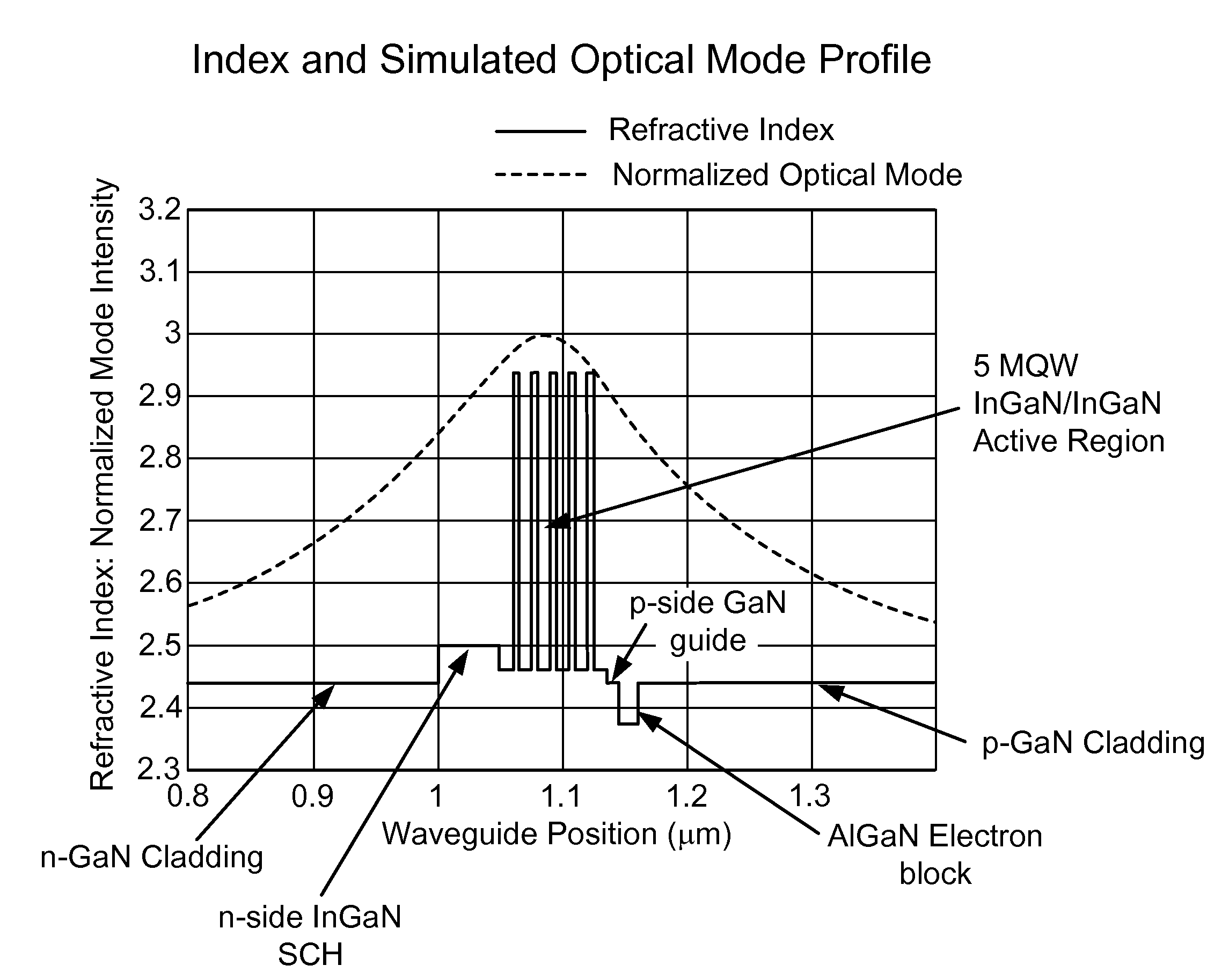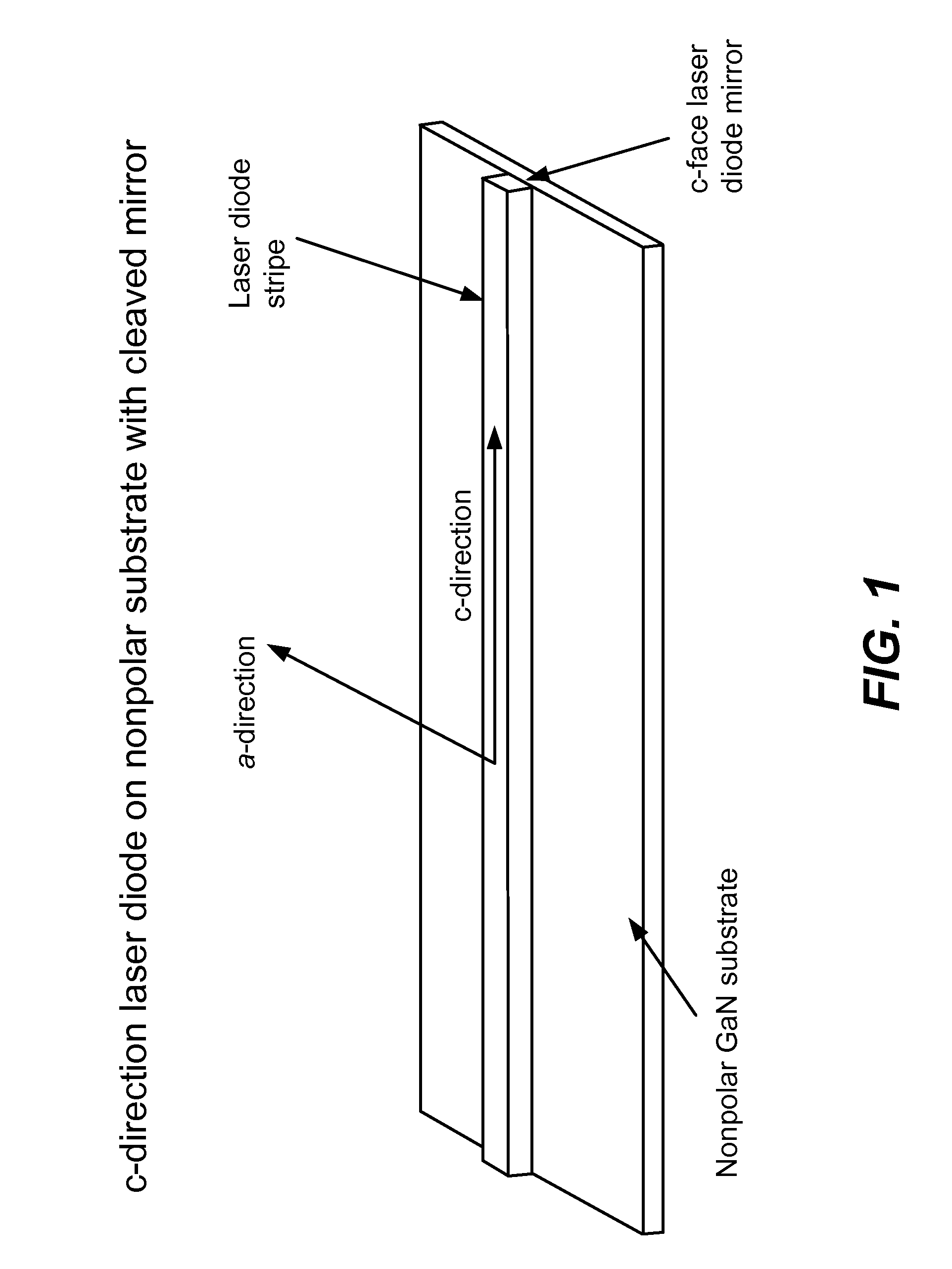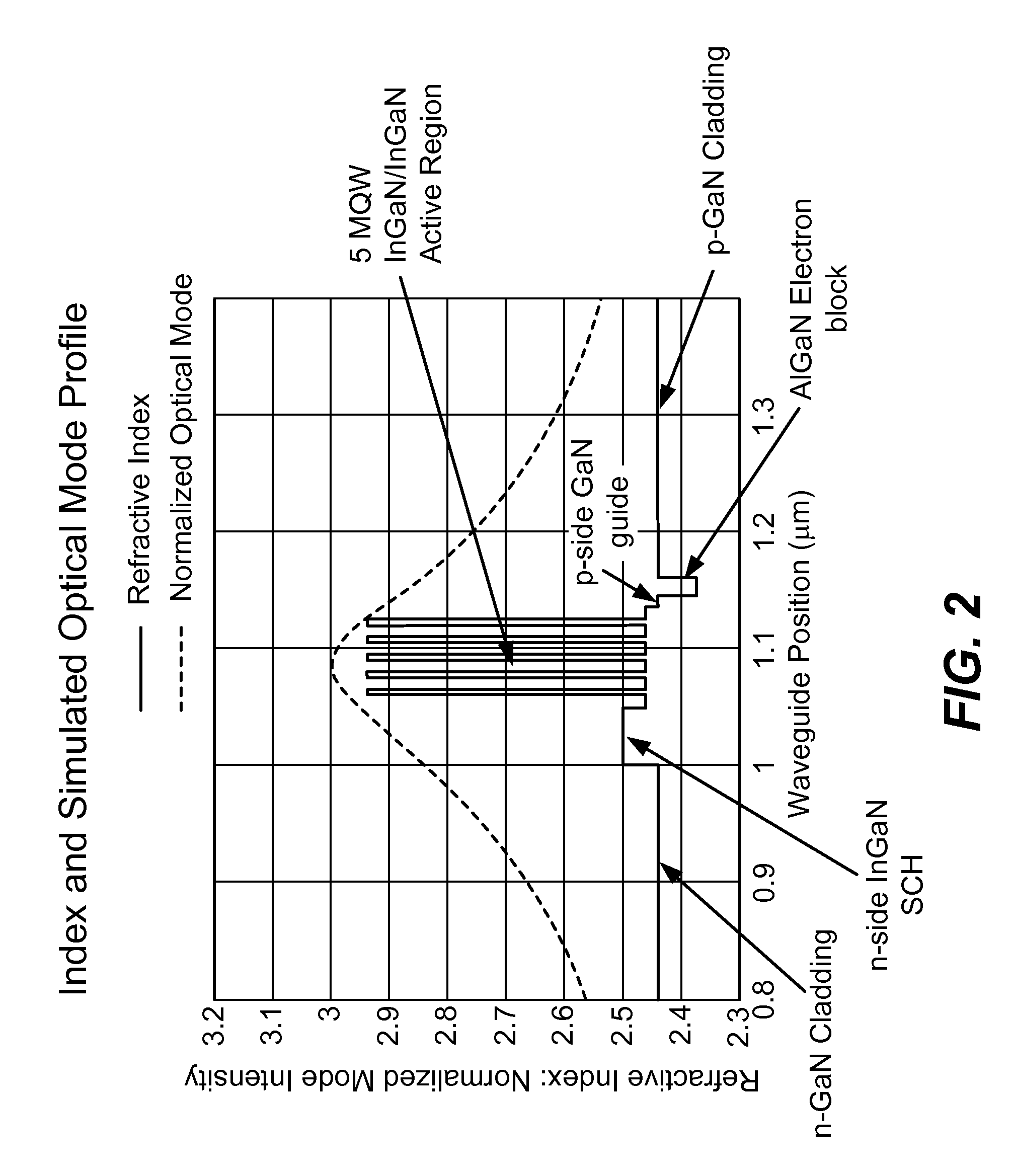Optical device structure using non-polar GaN substrates and growth structures for laser applications in 481 nm
- Summary
- Abstract
- Description
- Claims
- Application Information
AI Technical Summary
Benefits of technology
Problems solved by technology
Method used
Image
Examples
embodiment
[0031]In a specific embodiment, the present invention provides an alternative device structure capable of emitting 481 nm light, among others, in a ridge laser embodiment. The device is provided with one or more of the following elements, as also referenced in FIGS. 3A and 3B.
[0032]n-GaN cladding layer with a thickness from 100 nm to 3000 nm with Si doping level of 5E17 to 3E18 cm-3
[0033]n-side SCH layer comprised of InGaN with molar fraction of indium of between 4% and 6% and thickness from 45 to 60 nm
[0034]Multiple quantum well active region layers comprised of five 4.5-5.5 nm InGaN quantum wells separated by four 9.5-10.5 nm InGaN barriers with an indium molar fraction of between 1.5% and 3%
[0035]p-side guide layer comprised of GaN with molar a thickness from 10 nm to 20 nm.
[0036]Electron blocking layer comprised of AlGaN with molar fraction of aluminum of between 15% and 22% and thickness from 10 nm to 15 nm and doped with Mg.
[0037]p-GaN cladding layer with a thickness from 400 ...
PUM
 Login to View More
Login to View More Abstract
Description
Claims
Application Information
 Login to View More
Login to View More - R&D
- Intellectual Property
- Life Sciences
- Materials
- Tech Scout
- Unparalleled Data Quality
- Higher Quality Content
- 60% Fewer Hallucinations
Browse by: Latest US Patents, China's latest patents, Technical Efficacy Thesaurus, Application Domain, Technology Topic, Popular Technical Reports.
© 2025 PatSnap. All rights reserved.Legal|Privacy policy|Modern Slavery Act Transparency Statement|Sitemap|About US| Contact US: help@patsnap.com



